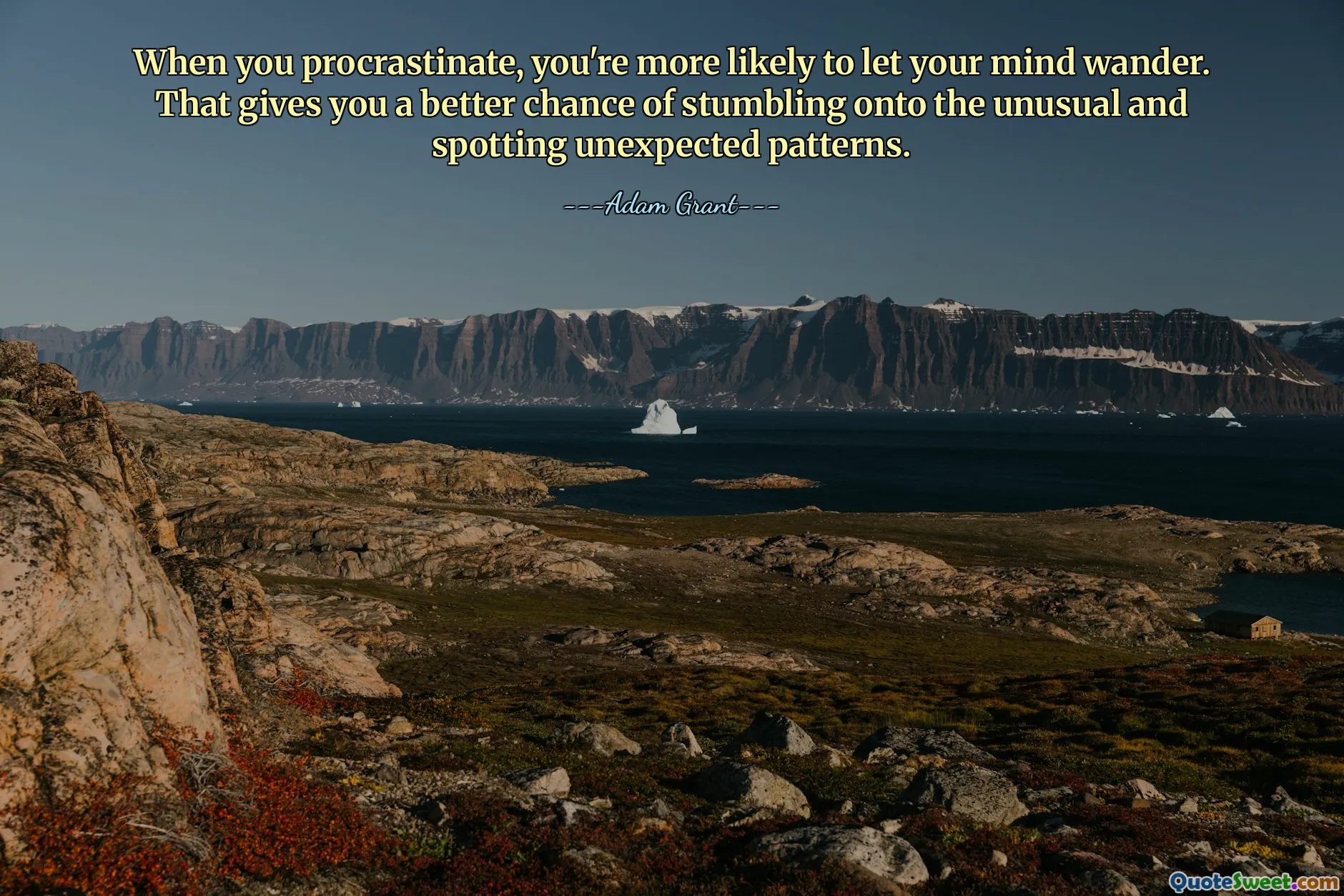
When you procrastinate, you're more likely to let your mind wander. That gives you a better chance of stumbling onto the unusual and spotting unexpected patterns.
Procrastination is often viewed negatively, as a delay or avoidance of tasks. However, this quote highlights a potential silver lining: when we procrastinate, our minds tend to drift, which can inadvertently lead us to creative insights and innovative patterns that might otherwise be missed. The brain’s default mode network, which activates during periods of rest and free thought, plays a crucial role here. During these moments of mental wandering, subconscious connections are made, unearthing ideas just beneath the surface of conscious awareness. This suggests that allowing ourselves deliberate downtime or occasional procrastination can foster creativity and problem-solving skills. Instead of criticizing ourselves for delaying tasks, we could view these moments as opportunities for mental exploration. Such an approach encourages a more empathetic perspective towards productivity, recognizing that our moments of distraction aren't mere laziness, but vital processes that can enhance our understanding and innovation. Embracing the wandering mind may also alleviate some pressure to always be productive, opening space for the unexpected discoveries that often come from idle moments. This aligns with many creative and scientific breakthroughs historically made during periods of relaxed thinking. Therefore, integrating mindful procrastination or unstructured downtime into our routines might be beneficial for unlocking potential that structured effort alone cannot achieve. ---Adam Grant---








